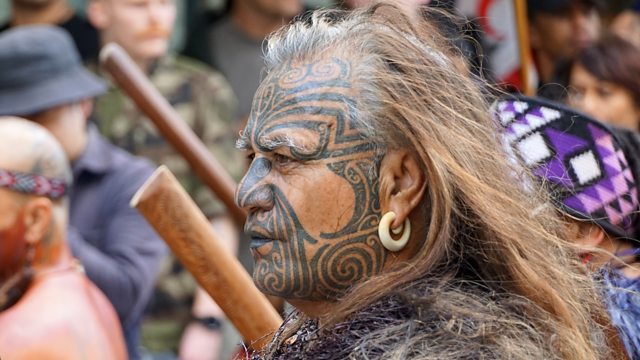New Zealand: What counts as M膩ori equality
Many M膩ori are protesting against the New Zealand government鈥檚 moves to abolish certain M膩ori-specific rights in the name of equality for all, regardless of ethnicity.
M膩ori in New Zealand have been resisting moves by the current right-of-centre government to abolish certain indigenous-specific rights aimed at combatting disadvantage.
In a 9-day hikoi or march of defiance they walked from the top of New Zealand down to the capital Wellington, joined by non-M膩ori supporters - all opposed to the changes.
A separate M膩ori Health Authority has been dismantled, for example. It was set up by the previous centre-left government to tackle health inequalities that mean indigenous people live seven years less than other New Zealanders. M膩ori also come bottom in statistics for employment, housing and education, and are highly overrepresented in prison.
Most divisive though, a new law proposal about the principles of the 1840 Treaty of Waitangi - New Zealand鈥檚 founding document, sought to do away with what has been a form of affirmative action, and instead treat everyone the same, regardless of heritage.
Some feel this is all necessary to achieve proper equality. Others feel that M膩ori progress will be undone and inequality or inequity entrenched.
Presenter and producer in New Zealand: Alex van Wel
Producers: Arlene Gregorius and John Murphy
Editor: Richard Fenton-Smith
Sound mix: Eloise Whitmore
Production Coordinator: Gemma Ashman
Series Editor: Penny Murphy
(Image: M膩ori protester with traditional M膩ori face tattoos. Credit: Dee van Wel)
Last on
More episodes
Broadcasts
- Last Tuesday 01:32GMT蜜芽传媒 World Service
- Last Tuesday 08:32GMT蜜芽传媒 World Service
- Last Tuesday 19:06GMT蜜芽传媒 World Service except East and Southern Africa & West and Central Africa
- Yesterday 11:32GMT蜜芽传媒 World Service except East Asia & South Asia
- Yesterday 15:06GMT蜜芽传媒 World Service News Internet
Download this programme
Subscribe to this programme or download individual episodes

